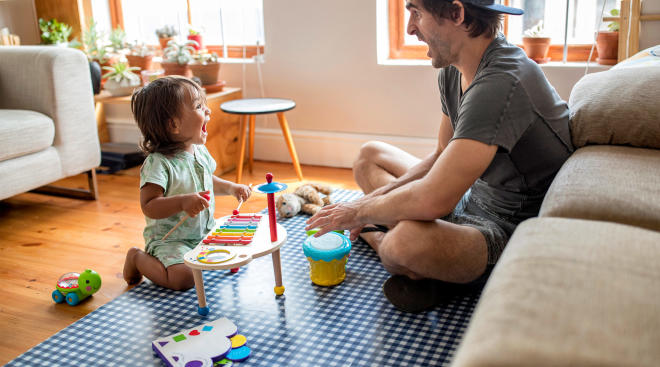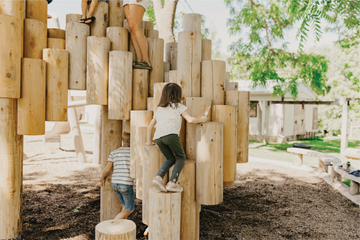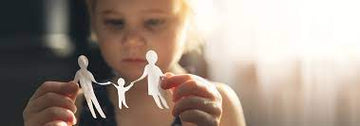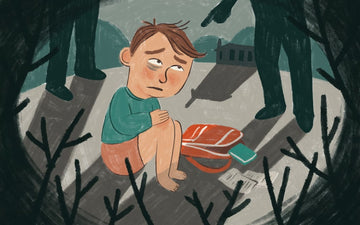
Developing Your Baby’s Cognition & Communication Skills Parenting is one of the most underrated skills, from finding the best baby products to learning how to massage, you have a gigantic task on your hands!
A parent’s work is never over! Amongst the never ending things you do for your child, developing their Cognitive & Communication Skills is probably the largest and the most important task.r cognitive development.
Cognitive development means how children think, explore and figure things out. It is the development of knowledge, skills and dispositions, which help children to think about and understand the world around them. As an infants' brain continues to develop, they also develop the ability to communicate; to comprehend and produce spoken language. Babies learn language by taking in information through their senses of hearing and sight as they learn to process the meanings behind those sights and sounds. They use their mouths, tongues, and ears as they learn to mimic the sights and sounds of other people in order to create their own sounds and communications.
 Nothing can replace the role human interaction plays in a child’s growth and development, especially when it comes to acquiring language and developing communication & cognitive skills. The importance of the parents talking to & playing with their babies as much as possible from day one has been strongly highlighted by various research studies and recommended by experts. Reading stories and telling babies about the things they see and do is the best way to verbally interact with babies and encourage their cognitive development.
Nothing can replace the role human interaction plays in a child’s growth and development, especially when it comes to acquiring language and developing communication & cognitive skills. The importance of the parents talking to & playing with their babies as much as possible from day one has been strongly highlighted by various research studies and recommended by experts. Reading stories and telling babies about the things they see and do is the best way to verbally interact with babies and encourage their cognitive development.Talk to your baby when they are looking at you & narrate what you do as you go through your daily routines

Read books to your baby using different voices and show him/her the pictures.

This is a very common yet effective way for your baby to visualize things and associate objects and actions with words.
Adding the Fun Element to Learning with Objects & Gestures.

Baby play is undeniably the most fun aspect of learning with the help of toys and regular
objects around the house. Just by playing, babies can develop essential skills like
understanding things, communicating, thinking, remembering, and imagining.
Hide toys, and encourage your child to find them.

Place toys just slightly out of sight of your baby, it should not be very difficult for them to find it or else they will get bored and distracted. Once they find it provide simple directions, such as “Go get your toy.”
You could also play the simple game of hide and seek within the same room.
Be an Active Listener & Praise their Efforts to Communicate

A conversation is a two-way street and that goes with your baby too. Just because your baby isn’t able to fully communicate, that doesn’t mean they are not trying to tell you something. In fact, not understanding what your baby wants may lead to frustration for your baby.
●Take brief pauses after you say something to let the baby know that they have the chance to reply
Use toys that make sounds and have different textures.

Sound-producing toys are not just for entertainment but they will also alert your baby to noise and boost their mood. Introduce your baby to a variety of sounds. Give your baby objects of different textures for him or her to feel them and identify the difference.
Managing Expectations & Staying Patient

Nurturing a child is a special thing for parents. Whatever age the baby is, parents usually want them to learn things fast and be the smart nuggets that the parent knows they are. Throughout the first year, your baby will start to develop cognition and motor skills. However, being able to communicate takes a lot of understanding of the language and the meaning of things. So, you will need to show patience while trying to make your baby say mama or dada. Also, there will be a few instances where you’ll have to step back a little. As hard as it sounds, your baby needs to figure some things out on their own. After all, learning and understanding things on their own will help them stand on their own two feet!
A growing body of research reveals just how important it is for babies to be exposed to lots of language, starting at birth. Parents, family members, and caregivers are children’s most important teachers and communication models. But it doesn’t take apps, videos, or other special tools to make the most of this crucial time. Your everyday interactions with your children help build their brains and support their communication development.
Keep in mind that development varies and an individual child may develop more quickly in one area than in another. However, the key is to start early and spend as much time as possible, interacting with your child in everyway possible.





